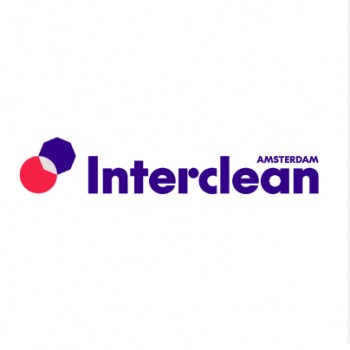Glutton® will participate in Interclean Amsterdam from April 14 to 17, 2026.
Visit us at our stand and discover how we are transforming urban cleanliness with high-performance, silent electric solut...
Blankenberge, Belgium "We've been using Glutton® machines for 17 years in the tightest corners and recesses."

Mr. ROETS
Elio Roets - Assistant head of department for public domain and installations management – Blankenberge, Belgium
About:
FACTS AND FIGURES
- Seaside resort
- 40-50 cleaning staff
- Large coastal station: 5000 passengers a day
- Many shops, cafés, restaurants and tea rooms
- 20,000 permanent residents, 100,000 in high season
Five Glutton® machines in service seven days a week, 365 days a year
Interview
Can you tell us about your department?
BODI is short for "Beheer Openbaar Domein en Installaties" (public domain and installations management). The name says it all – we manage the public domain.
The department has a total workforce of 100 including technical and administrative staff. The cleansing service has between 40 and 50 operatives. Every day of the year, we use Glutton® urban waste street sweepers and vacuum cleaners.
Can you describe your town in more detail?
Blankenberge is first and foremost a tourist town. It has 20,000 permanent residents. In summer, the population reaches 80,000 or even 100,000 with second homes, tourism, hotels, etc. Blankenberge is also very densely populated. People live quite close to each other except in the polder area.
Tourist resorts are always busy, as you might have noticed in the town centre. As far as cleaning is concerned there is no comparison between a tourist resort and a normal town, where visitors arrive in large numbers only for specific events. Here, the town has to be clean 365 days a year. At weekends and during busy periods like now, the Easter holidays, we see a peak in visitor numbers, especially at weekends and when the weather is good. At these times the number of day trippers increases exponentially – as does the amount of waste they generate.
What are your main challenges and aims?
The biggest challenge is to keep doing our job 365 days a year. We always need to be ready, and the town always has to be clean. Some periods are busier than others, and sometimes more personnel and more equipment need to be deployed. Not only must there be enough operatives, but we must also ensure that they are sufficiently motivated.
We used to employ some workers part time. These days we do things differently. Our entire workforce are permanent employees. At the outset, however, we made an agreement requiring leave to be taken during quieter times outside the peak periods. There is some flexibility, though, and some colleagues occasionally have days off over the summer. Of course, people with school-age children are allowed to take leave during the school holidays. So we try to make do with a sometimes depleted workforce, and our operatives also know how much we depend on them. This presents a serious organisational challenge: we sometimes have to use other methods to enable us to work as effectively as we do with the Glutton®.
Tell us a little about how you use the Glutton® in Blankenberge.
We mainly use the Glutton® to clean streets, corners and recesses. The Glutton® can't do everything but it's a very practical machine for cleaning the gaps between benches and under benches.
We use our Glutton® machines every day, and they begin their rounds at 08:00. They first head for the town centre. There are people on the streets even at this early hour, but our teams have space to work until 10:00. More people start arriving at around 11:00. That's why in the afternoon we focus on outlying areas, which are much less busy.
When did you discover the Glutton®?
I think it must have been around the year 2000. Of course, the first Glutton® models had a petrol engine. They were two of the first machines made by Glutton®. We were very happy with them – that's why we carried on using them. We then probably replaced the old models with electric models. We currently have five Glutton® machines in service, only one of which has a petrol engine. Although it's still working we don't use it any more.
Talking of which, can you tell us about your first electric machine?
We opted for the electric models because of their many benefits compared to the petrol models. We found that the teams using an electric model were indeed more effective, mainly because of the more powerful suction motor.
I've just been talking to an operative who told me: "Before when I used a petrol Glutton®, it was really noisy". And there was the exhaust – you can smell and hear a petrol engine. Now people hardly notice the new electric Glutton® machines. This is a very positive point.
In terms of the design, the old models had smaller wheels. They were less stable than the new models with bigger wheels. We have watched with interest as the range develops. The early models had a PVC nozzle – today, the nozzle is made of carbon fibre. Whenever a new product comes onto the market, we buy it. We've been using Glutton® machines for 17 years and we've always been satisfied.
Do you think the Glutton® is a good solution for users and for the city's residents?
Our councillors, the town's SMEs and the people on the street have all told us what they think.
They are unanimous: the version with the electric motor represents real progress. The comments were made at a time when we were using two Glutton® machines with an electric motor and three with a petrol engine. For a time we were even using up to seven machines. Operators and residents alike preferred the electric models.
It's nicer for operators too to work with a quieter machine. The petrol models were great machines, but the engines wore out and needed regular maintenance. This meant the machine had to be taken out of service temporarily. The electric models are also much cheaper to maintain. We are very happy with the switch to the electric model.





 • Share content
• Share content